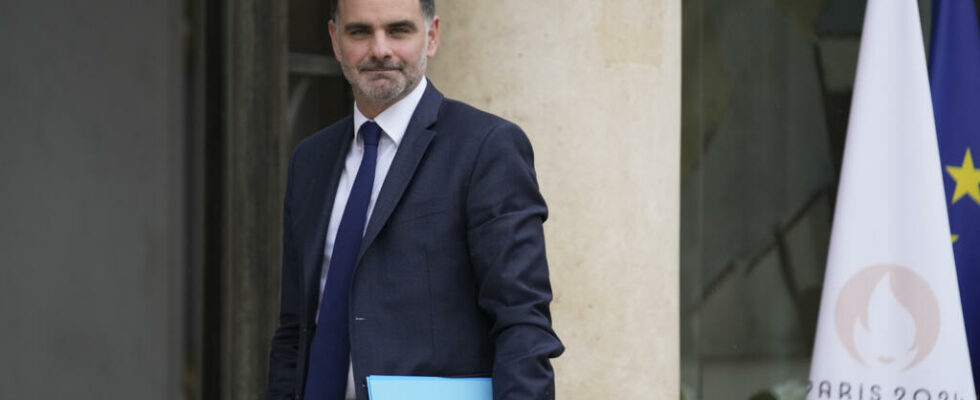Two days after the general policy speech by French Prime Minister Michel Barnier, during which he mentioned a tax increase for the wealthiest, the Minister of Budget and Public Accounts Laurent Saint-Martin provided this Thursday, October 3, some details on the profiles concerned.
4 mins
Since the French Prime Minister Michel Barnier indicated that it plans additional taxes, in addition to a considerable effort on spending, to clean up public accounts in the red, questions are rife about the profile of the taxpayers concerned within the framework of the draft budget for 2025. Who are THE ” The wealthiest French people » mentioned on October 1 in his general policy speech in the name of the “ tax justice » ? And what about “ large companies that make significant profits » ?
The Minister of Budget and Public Accounts, Laurent Saint-Martin, gave an element of response this Thursday, citing the example “ of a household without children which receives income of approximately 500,000 euros per year “. “ We are really talking about the most fortunate “, either ” 0.3% » of the approximately 20 million households paying income tax, he insisted on France 2. “ We do not touch 99.7% of our taxpayers “.
Caring for the most fragile
“ After the years of protection of employment, income and growth that we have had, we can legitimately ask the wealthiest taxpayers to participate exceptionally, temporarily in this recovery effort. », added the minister whose portfolio is attached to Matignon. He repeated, like the Prime Minister previously, wanting to preserve “ the most vulnerable households, and in particular the middle classes and those who work “. “ There will be no general increase in income tax ” neither ” deindexation of the income tax scale “, he clarified.
The measure will concern 65,000 tax households, according to his ministry. The modalities of its implementation according to the composition of tax households and the amount of expected revenue will be specified within the framework of the finance bill which will be presented on October 10 to the Council of Ministers or during the parliamentary debate by way of amendments. .
This is not the first time that the wealthiest have been asked in France to participate more in the collective debt reduction effort. Decided under the presidency of Nicolas Sarkozy, at the end of the financial crisis, an exceptional contribution on high incomes (CEHR) was put in place in 2012, supposed to last until the accounts of public administrations are back to normal. balance.
An already existing device
The exceptional contribution on high incomes still exists today and is added to income tax. Single people pay this surcharge on the portion of the reference tax income above 250,000 euros, at a rate starting at 3%, and married couples from 500,001 euros.
Asked whether the contribution announced by the current government would cover a period of one year, Laurent Saint-Martin dodged, insisting on its nature “ temporary “, as for ” very large companies ”, in order to preserve “ supply and growth policy » deployed according to him successfully since 2017.
To reduce the public deficit to 5% of GDP in 2025, after an expected increase to 6.1% this year, the government plans an effort to “ 60 billion euros », including more than 40 billion in spending cuts and just under 20 billion in tax increases. Retirees are also in its sights, with a six-month postponement, to July 1, of the indexation of pensions, which would bring in three billion.
What about big companies?
As for the “ very large companies “, they will have to pay ” an exceptional surcharge on corporate tax », indicated Laurent Saint-Martin, without explicitly confirming whether their tax rate would increase from 25% to 33.5%. It is the turnover which will serve as a reference to determine the companies concerned, indicated his ministry, without specifying whether this will be around the minimum billion euros.
Like his colleague in charge of Ecology and Energy, Agnès Pannier-Runacher, who warned on October 2 that a new tax on energy companies risked increasing French bills, the Budget Minister estimated that there was ” probably a smarter thing to do than having the tax reflex all the time “. “ We will work with energy companies “, he added.
Also readSoaring public debt: “No reason to panic in the very short term”
